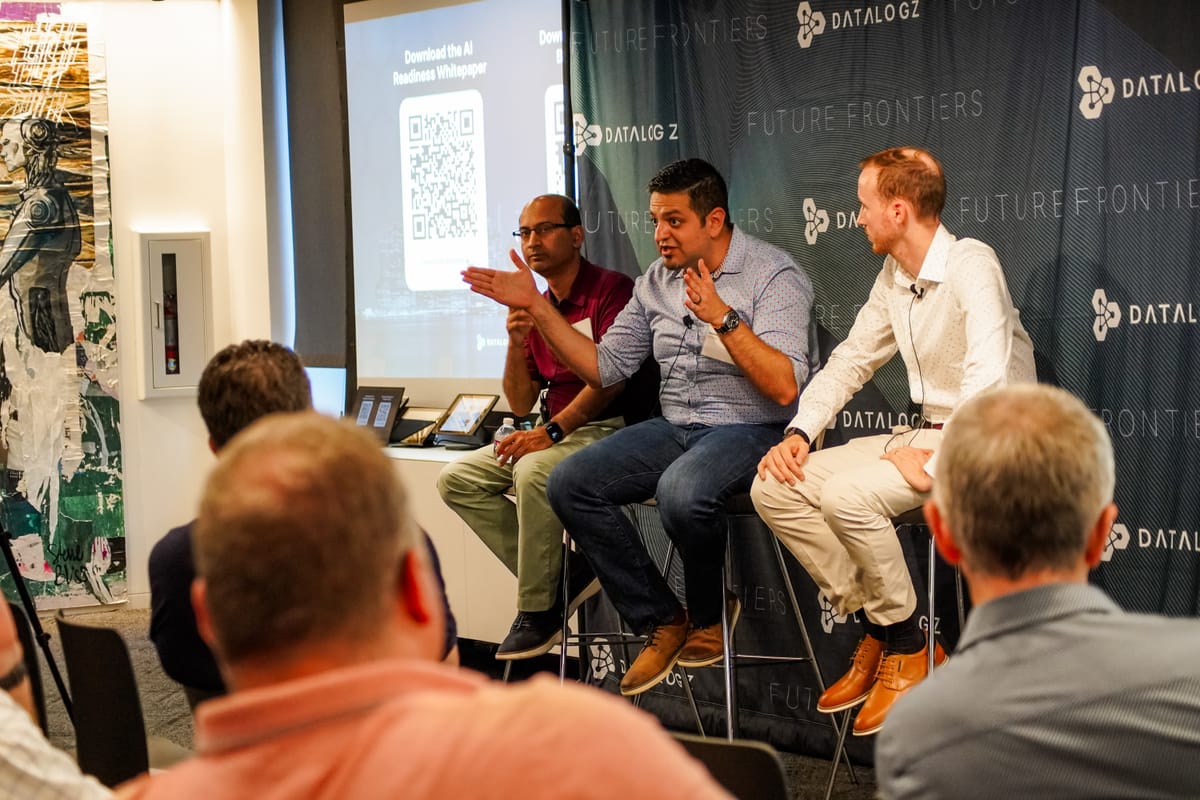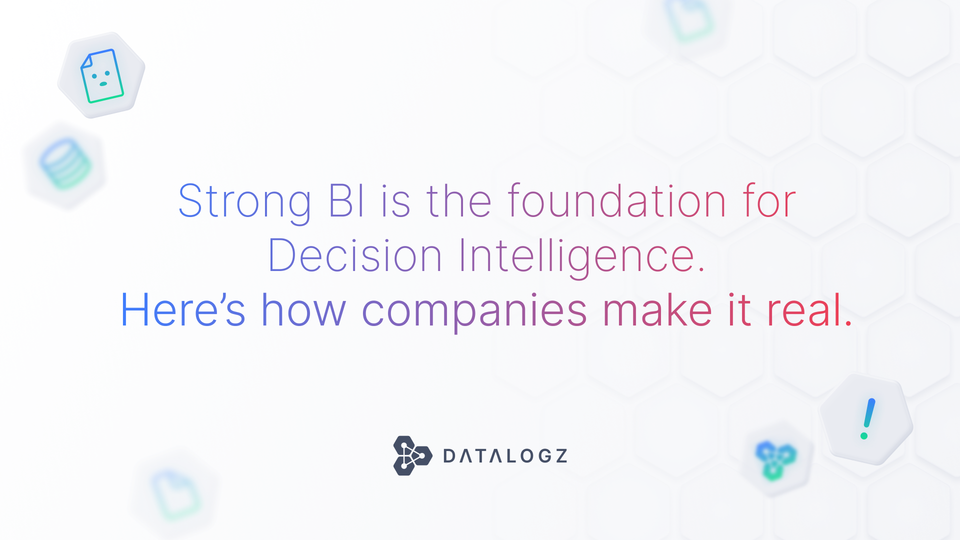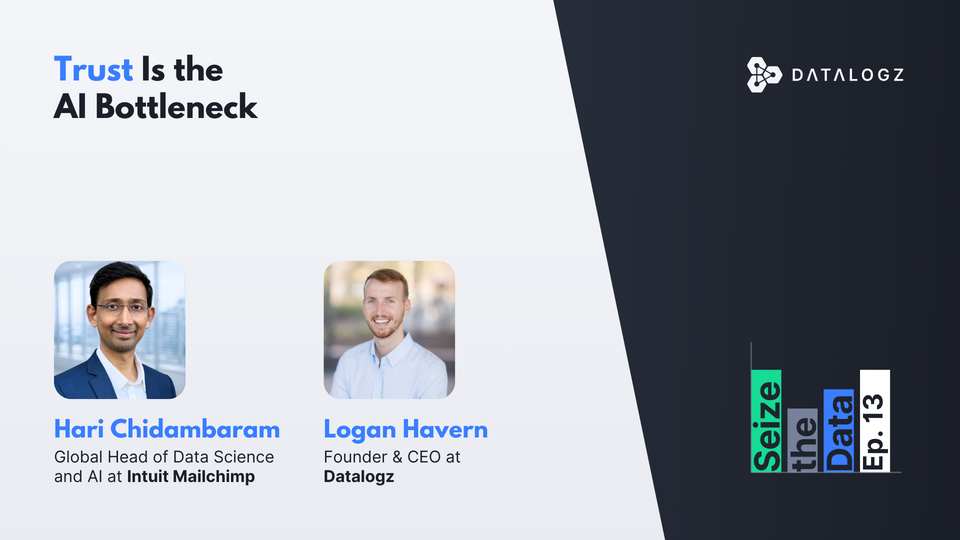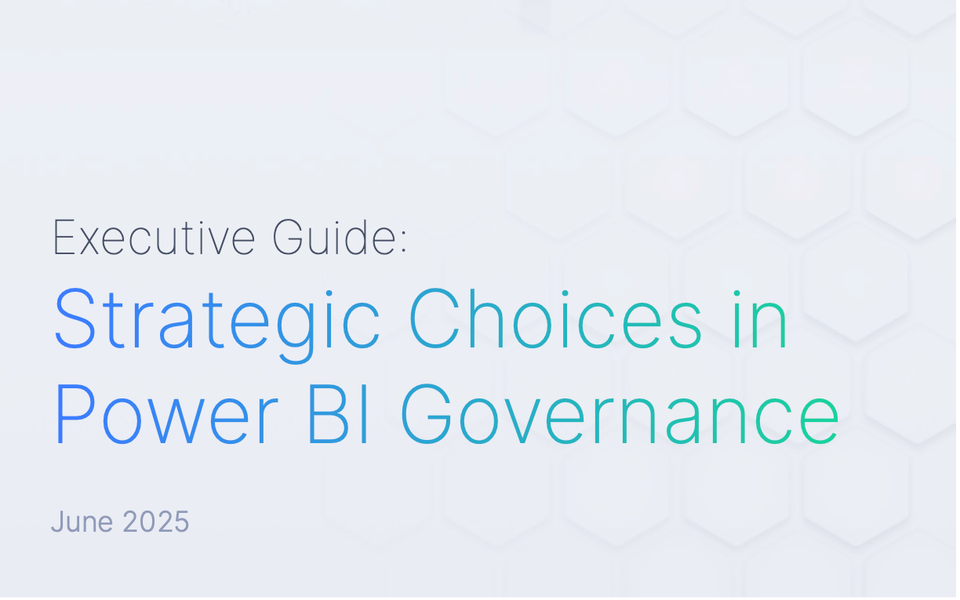How AI Is Reshaping Data, Analytics, and BI Ops
AI is a must on many roadmaps today, but you can’t afford to begin that journey without understanding of all of the cost and risk in your environment, and guardrails around it.

AI will transform how enterprises do business. That means its impact will propagate across organizations, not to a particular team, or a specific layer of the tech stack.
To capitalize on AI, it will require a whole-of-organization approach that aligns people, processes, and technology.
This will be particularly important in the area of data and analytics, where AI will revolutionize both the workflows, the people who maintain databases and dashboards, as well as the capabilities of tools that drive decision-making.
This is not a process that happens overnight. Enterprises must prepare, and they must act quickly to move at the constantly accelerating pace of change.
At Datalogz’ Future Frontiers event in July, 2025, data and analytics leaders offered a view of how AI reshaping the landscape, and tactical tips on how CDOs and data leaders can position themselves to win the next era.
Hosted at Perkins Coie’s offices in Midtown Manhattan, the panel featured:
- Vishal Saxena, CTO of Octus, the credit intelligence and data provider
- Gorkem Sevinc, Co-Founder and CEO of Qualytics, the enterprise data quality platform
- Logan Havern, Co-Founder and CEO of Datalogz, the platform ending BI Sprawl for data-mature organizations.
In this recap, we share insights from the panelists that data practitioners are putting to use in their jobs today:
The Evolution of Enterprise Data
Vishal Saxena has two words to describe the evolution of enterprise data environments: complex and solvable.
This applies to the evolution of AI, said Saxena. There’s a huge transition underway. Right now, the input to the end user is very structured, whether there’s a BI tool or a mobile app.
With AI, the input is increasingly unstructured. That’s a big shift.
To navigate this change, you have to understand all of the components of a system, and you have to understand the purpose behind them. There are more every day.
Start with an understanding of the present, and the future will start to fill in from there.
As Vishal shared during the event, your AI cannot be any better than the AI that’s powering it. One doesn’t happen without the other.
Want to Be AI Ready? Get Your Data House in Order
As the founder of an enterprise data quality platform that works with the Fortune 2000, Gorkem Sevinc has a unique view into the market. He helped us dig into the numbers about AI adoption. Consider this:
Chief Data Officer used to be a new and emerging role. Only 10% of companies had one. Today, 83% of companies have a Chief Data Officer.
They’re all working with AI, and are spearheading initiatives to implement it across the enterprise.
But guess how many have AI in production? It’s about 10%.
There’s still distance between the plans on paper, and implementation. That’s because companies aren’t prepared. Their data house has to be in order.
When companies open the closet, they find a lot of work to be done. They have to address governance, privacy, and security of the underlying data that will feed AI models.
Only when all three of those are addressed will l enterprises be AI ready.
The Cost of a Decision
There has never been more data flowing through organizations, and that data has never done more to power decision-making. But, Logan wants you to consider what’s behind that data, especially with the arrival of AI.
Data has a cost. It takes compute to get from an S3 bucket to a warehouse to a BI tool, and companies pay at every layer.
There’s also risk. Is the data you’re using reliable and accurate? Or is stale and pulled from duplicated reports that are clogging your BI environment?
As more and more people interact with data, the cost and risk goes up.
With AI, it won’t only be people interacting with data. There will be LLMs, agents, and other tools that are designed to do more work, faster.
In this environment, cost and risk won’t just expand, it will compound exponentially.
Along with more data and more access, governance and security will become even more important. There’s more risk than ever that results will be drowned out by noise, or hallucinated.
AI is a must on many roadmaps today, but you can’t afford to begin that journey without understanding of all of the cost and risk in your environment, and guardrails around it.
Accuracy. Consistency. Governance.
These have always been the tentpoles of a sound data environment. But they’ve been overlooked. You can’t afford to ignore them anymore. AI simply won’t allow it.
Future Frontiers Delivers Actionable Insights
Every quarter, Future Frontiers continues to deliver insights for practitioners across the spectrum of data professionals, all the way to the C-Suite.
The July event left us with the following key takeaways:
A strong data foundation is the most important element to consider when you’re planning a data strategy. Whether it's AI or BI tools, the first step is to get data in, make sure it's right, and make sure it's accurate for any use case.
AI will revolutionize analytics. In the data world, BI ushered in the era of self-serve analytics. With AI, tools are going to make it easier than ever before to interact with data, and more people will do as a result.
The democratization of data will continue to accelerate.
Datalogz thanks the panelists, hosts at Perkins Coie, attendees, and everyone who was a part of Future Frontiers. Sign up HERE for our next event on August 26 at Perkins Coie! We’ll be co-hosting with Metric Insights.




